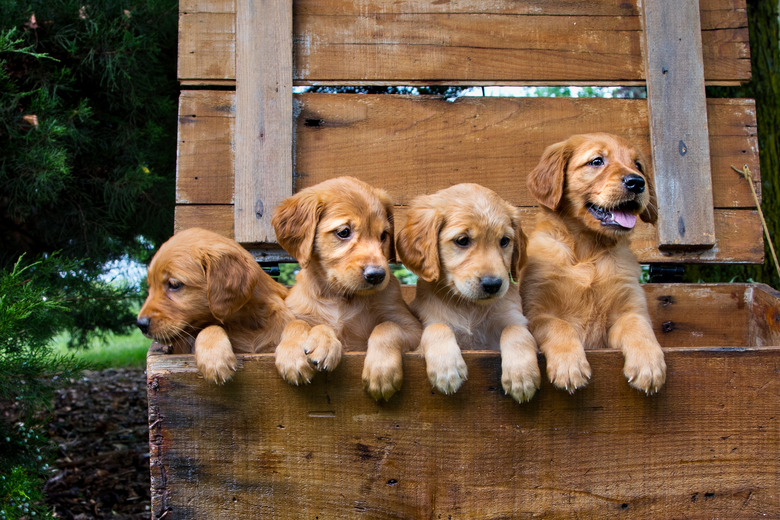Does My Dog Miss Her Puppies?
For a dog owner, those initial dog pregnancy signs can be the beginnings of an emotional roller coaster. You watch your dog's belly get bigger, then she gives birth to puppies with your help, the two of you care for those tiny, little pups, cherishing every one of those early puppy growth stages until, one day, you adopt them out to new homes. As your heart aches at the thought of giving away your furry bundles of joy, you might wonder about the mother dog and her puppies: do they miss each other once they're separated? The answer is a bit complicated and will vary based on the individual dog.
The history of dogs
The history of dogs
Just about everyone knows that dogs are evolved from wolves, so you might wonder how wolves raise their pups. As The International Wolf Center explains, wolves live as families and help raise cubs together. The cubs will stay with their pack all the way into adulthood, with some wolves staying in the same pack their whole lives.
But dogs are not wolves and have long been bred and reared by humans who usually separate the mother and her pups some time after eight weeks of age. The same way dogs have evolved to eat omnivorous rather than purely carnivorous diets, dogs seem to have adjusted to having their puppies taken away from them.
Remembering family members
Remembering family members
There are many anecdotes from people who claim mother dogs remember their puppies and puppies remember their mothers, but there are just as many stories from people who claim the opposite. Galit Reuben, the executive director of Dogs Without Borders told the Dodo that "I have observed moms reunited with puppies at adoption events, and the mom doesn't seem to respond in any unusual manner. If she's a happy dog who likes to meet other dogs, she will respond positively. If she's shy and not socialized, she will react accordingly."
But research says that isn't the full extent of the issue. According to Daily Dog Discoveries, researcher Peter G. Hepper conducted a study that showed that between 4 and 5-1/2 weeks of age, a dog's olfactory responses were strong enough to recognize their mother and their siblings. He then went on to separate the mothers and the puppies for two years in order to see if the dogs recognized each other after a long period apart — and sure enough, the mother was able to identify her now adult puppies and they could recognize their mother.
Years later, William Carr and other scientists at Beaver College built upon Hepper's research to see if dogs could recognize their family members after even longer periods of separation. The researchers discovered that dogs given a blanket that smelled like their mother would sniff at it for a much longer time than they would a blanket that had the smell of a strange dog of the same breed. These responses still occurred in dogs who hadn't seen their mother in over ten years.
Mother dog and puppies
Mother dog and puppies
So mother dogs may remember their puppies years later, but does that mean they miss them? That question is a lot harder to answer. So far, there is no conclusive research either way, but there is plenty of anecdotal evidence pointing either way. Some mother dogs will actually get aggressive at puppies who continue to live with them after six months, sort of like human parents who want their 18-year-old child to move out of the house.
On the other hand, some mother dogs have been known to mope about the house or even adopt foster puppies once their litter has been taken away. Simply for Dogs has the story of Lucy, a Rottweiler who stole and cuddled with a "litter" of Rottweiler plush toys from her owner after her puppies had all been given away. Based on the anecdotal evidence, it seems that whether or not a mother dog will miss her puppies ultimately comes down to the mother in question and whether she has a particularly maternal nature or not.
